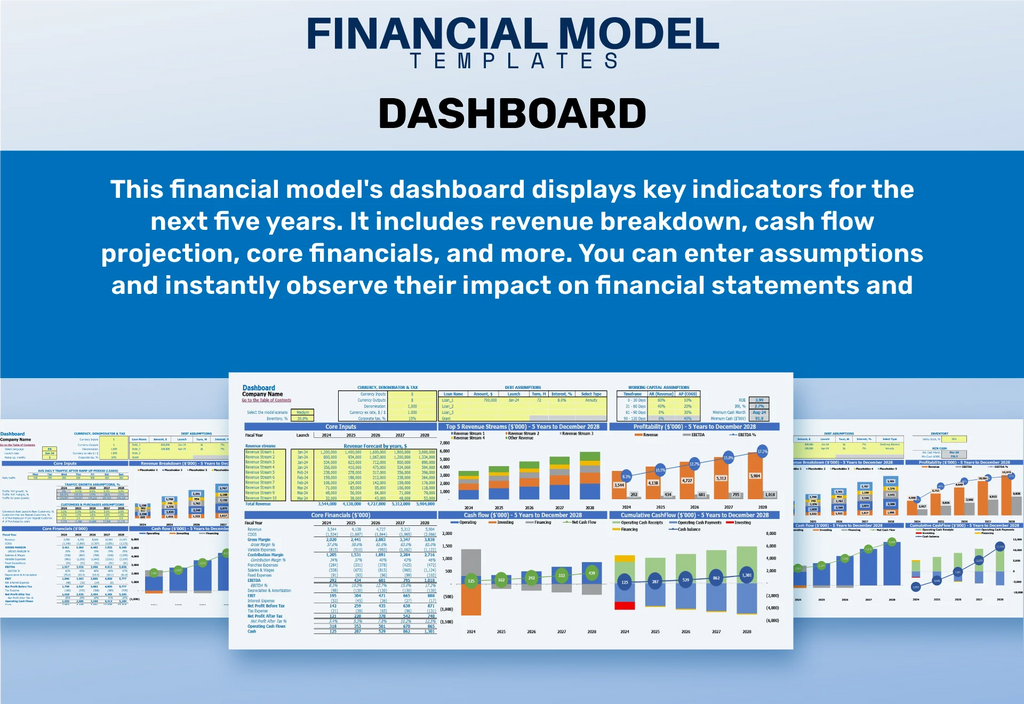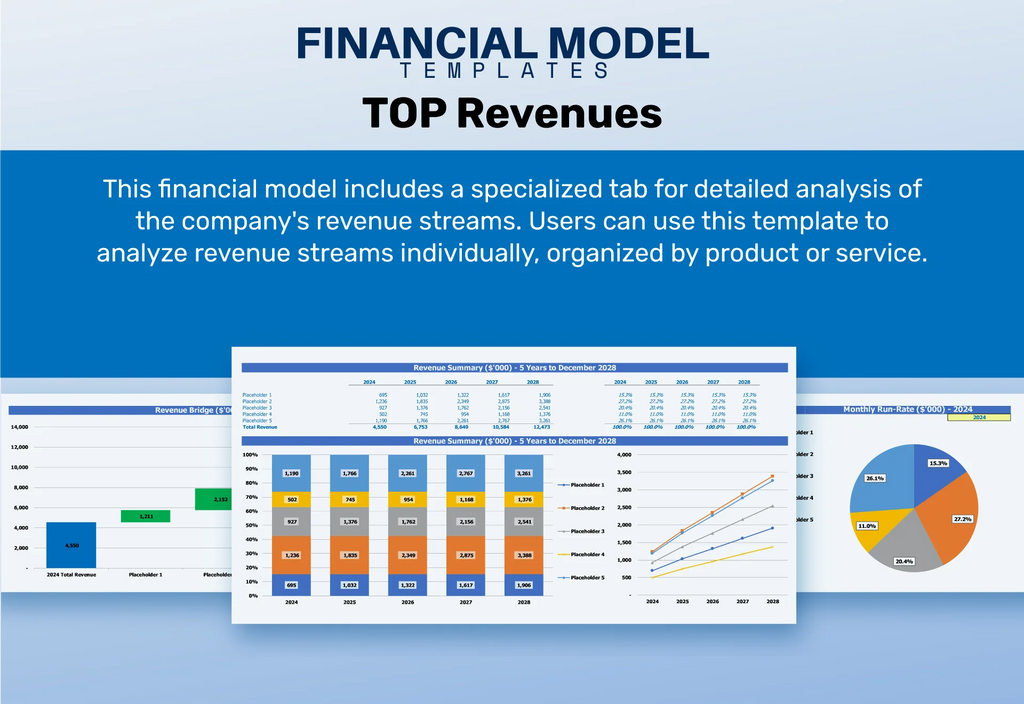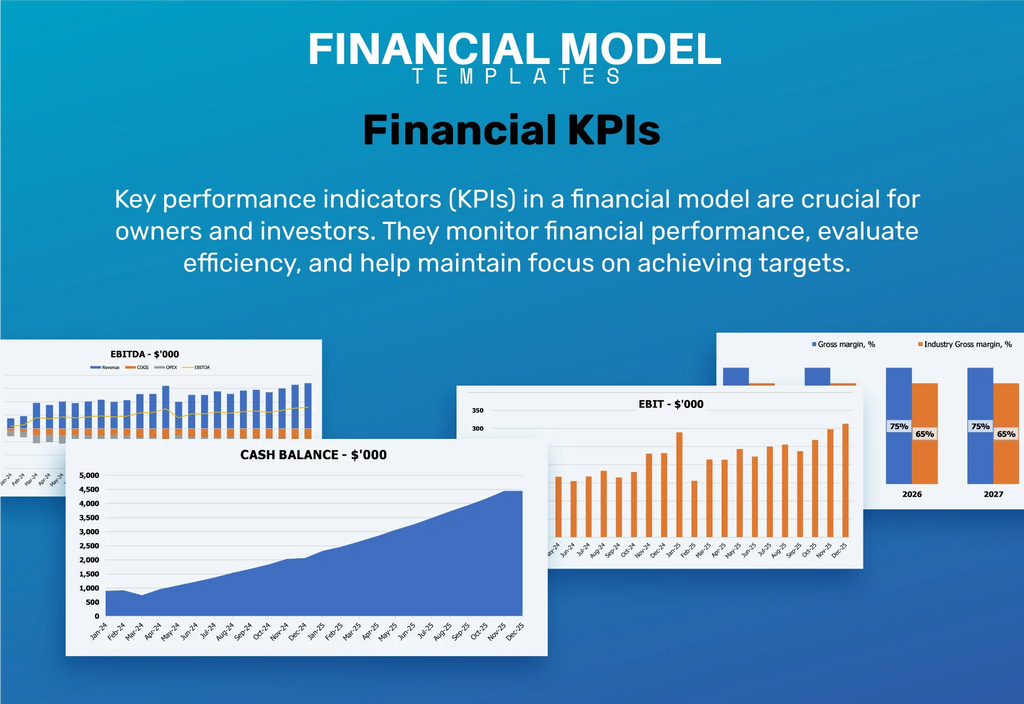Glass Recycling Financial Model

- ✔ 5-Year Financial Projections
- ✔ 100% Editable
- ✔ Investor-Approved Valuation Models
- ✔ MAC/PC Compatible, Fully Unlocked
- ✔ No Accounting Or Financial Knowledge
Glass Recycling Financial Model
Bundle Includes:
ALL IN ONE MEGA PACK - CONSIST OF:
glass recycling Financial Model/Business Plan Excel Template
Pitch Deck Template For PowerPoint, Keynote & Google Slides
Business Plan Guide and Business Plan Template in MS Word Format
Financial Dashboard in Excel To Track Your Business Performance
GLASS RECYCLING FINANCIAL MODEL FOR STARTUP INFO
Highlights
This comprehensive glass recycling business plan incorporates a detailed glass recycling revenue model and thorough glass recycling market analysis to assess the viability and scalability of the enterprise. It includes financial projections for glass recycling, capturing essential elements such as glass collection and processing costs, operational expenses, and capital expenditures for glass recycling facilities. The financial model provides insights into profitability metrics and cash flow forecasts, which are crucial for understanding return on investment for glass recycling initiatives. Additionally, the plan explores investment strategies and partnership opportunities while highlighting the sustainability impacts and environmental benefits of glass recycling. By evaluating industry trends and exploring grant opportunities, this plan aims to strategically position your glass recycling venture for success in a growing market.
This glass recycling financial model template addresses key pain points by providing a comprehensive framework for analyzing glass recycling ventures, focusing on diverse revenue models and operational expenses. It facilitates in-depth cost analysis, including glass collection and processing costs, while allowing users to project financial scenarios over five years, leading to accurate cash flow forecasts. The model emphasizes glass recycling profitability metrics and return on investment, which are essential for attracting investors and securing glass recycling facility financing. Additionally, it allows for adjustments in startup and capital expenditures, enabling users to visualize sustainability impacts and explore partnership opportunities and grant funding. Such flexibility ensures that users can effectively navigate the complexities of the glass recycling market and make informed decisions based on industry trends.
Description
The glass recycling financial model template is essential for assessing the startup's financial feasibility, helping entrepreneurs gauge the initial capital expenditures and operational expenses necessary for launching their business. This comprehensive model projects a 5-year timeline of profitability metrics, including profit and loss statements, balance sheets, and cash flow forecasts, specifically tailored for the glass recycling market. By integrating key performance indicators and conducting a cost analysis of glass collection and processing, users can evaluate the glass recycling revenue model and understand the sustainability impacts crucial for attracting potential investors. Additionally, the spreadsheet allows for dynamic adjustments, ensuring that changes in industry trends and financial projections are reflected in real-time, ultimately aiding in the development of robust investment strategies and maximizing return on investment.
GLASS RECYCLING FINANCIAL MODEL REPORTS
All in One Place
A robust glass recycling business plan, complete with financial projections and cost analysis, is essential for attracting investors. An investor-friendly template can effectively showcase your revenue model and operational expenses, ensuring clarity in glass collection and processing costs. By detailing profitability metrics and return on investment, you demonstrate the sustainability impacts and environmental benefits of your venture. Additionally, highlighting industry trends and potential partnerships can bolster your case for financing. A well-structured financial plan not only validates your funding needs but also paves the way for successful glass recycling facility financing and strategic investment opportunities.

Dashboard
The Dashboard tab in the free startup financial model template provides a compelling financial overview for your glass recycling business plan. Featuring insightful graphs, charts, and key ratios, it effectively summarizes essential data such as glass recycling revenue models and operational expenses. This user-friendly interface allows you to effortlessly incorporate financial projections, cash flow forecasts, and profitability metrics into your pitch deck. Leverage this tool to highlight your glass recycling investment strategies and showcase the sustainability impacts of your operations, making it easier to attract potential investors and secure funding.

Business Financial Statements
This comprehensive startup financial model template excels in facilitating glass recycling ventures. It integrates three essential financial statements: a profit and loss forecast, a projected balance sheet, and a startup cash flow statement. Over a five-year horizon, this template seamlessly connects and consolidates all financial data, enabling detailed analyses of glass recycling costs, revenues, and profitability metrics. By leveraging this tool, entrepreneurs can effectively assess operational expenses, capital expenditures, and financial projections, paving the way for informed investment strategies and sustainable growth within the glass recycling industry.

Sources And Uses Statement
The "Sources and Uses of Capital" tab within the startup financial model template elegantly tracks funding sources for your glass recycling business plan while outlining key expenditure categories. This comprehensive tool provides insights into capital expenditures for glass recycling, aiding in financial projections and evaluating cash flow forecasts. By analyzing operational expenses and identifying investment strategies, entrepreneurs can enhance profitability metrics and explore partnership opportunities in the glass recycling market. Leverage this resource to optimize your glass recycling revenue model and assess sustainability impacts, ensuring a robust approach to capturing grant opportunities and navigating industry trends.

Break Even Point In Sales Dollars
Our comprehensive financial model Excel template includes a robust pro forma for break-even analysis, essential for any glass recycling business plan. By leveraging the break-even graph, companies can pinpoint optimal pricing strategies that ensure revenues cover operational expenses. This analysis not only highlights profitability metrics but also aids in projecting cash flow and understanding the financial projections for glass recycling ventures. Such insights are crucial for navigating investment strategies and ensuring sustainability impacts are maximized while identifying partnership opportunities and grant funding in the growing glass recycling industry.

Top Revenue
Investors closely scrutinize a company's projected profit and loss statements, focusing on top-line and bottom-line figures. The top line represents total revenues or gross sales, indicating a company's financial health. Notably, growth in this area—referred to as "top-line growth"—signals increasing revenues that can enhance overall profitability. For a glass recycling business, understanding revenue models, operational expenses, and capital expenditures is crucial. By effectively managing these metrics, the company can attract investment, optimize cash flow, and ensure sustainable growth while maximizing environmental benefits within the glass recycling industry.

Business Top Expenses Spreadsheet
A comprehensive cost analysis is essential for developing a robust glass recycling business plan. By tracking operational expenses and categorizing expenditures, you can gain insights into glass collection and processing costs, enhancing your financial projections. This data allows for effective cash flow forecasting and identifying profitability metrics. Additionally, understanding expenses helps optimize investment strategies and assess the return on investment for glass recycling initiatives. Utilizing expense reports can illuminate industry trends, enabling better decision-making and fostering potential partnership opportunities while highlighting the sustainability impacts of your operations.

GLASS RECYCLING FINANCIAL PROJECTION EXPENSES
Costs
Startup costs are crucial in any glass recycling business plan, necessitating careful monitoring to optimize fund usage and avoid unnecessary expenditure. Our three-way financial model includes a tailored proforma, focusing on glass recycling cost analysis and operational expenses. This proforma not only facilitates expense tracking but also aids in budget development, ensuring financial projections for glass recycling align with your strategic goals. By effectively managing startup costs, you can enhance profitability metrics and improve return on investment while capitalizing on sustainability impacts and industry trends.

CAPEX Spending
Capital expenditures (CAPEX) represent substantial investment costs for assets that drive a glass recycling business forward. These expenses, crucial for operational optimization, must be accurately reflected in financial projections, including balance sheets and cash flow forecasts. By strategically investing in advanced technology and equipment, companies can enhance operational efficiency and output, ultimately leading to improved profitability metrics. Tracking these investments is essential for understanding the sustainability impacts of glass recycling and maximizing return on investment. Careful analysis of CAPEX can uncover valuable partnership opportunities and grant prospects within the glass recycling industry.

Loan Financing Calculator
The loan amortization schedule template within our financial model facilitates efficient tracking of loan repayment terms. Designed specifically for glass recycling businesses, this template includes integrated formulas to monitor each loan's details, including repayment dates and terms. It adeptly manages various loan types—monthly, quarterly, or annually—ensuring clarity in your financial projections for glass recycling. By incorporating this tool, you strengthen your glass recycling business plan, enhancing your operational efficiency and financial analysis. This is vital for assessing sustainability impacts and investment strategies in the evolving glass recycling industry.

GLASS RECYCLING EXCEL FINANCIAL MODEL METRICS
Financial KPIs
A comprehensive glass recycling business plan is essential for tracking key performance indicators (KPIs) over a five-year horizon. Critical financial projections include EBITDA/EBIT, which measures pre-tax earnings, and cash flow, reflecting incoming and outgoing cash. Additionally, maintaining a robust cash balance is vital for assessing liquidity. Incorporating market analysis, operational expenses, and profitability metrics will enhance your understanding of revenue models and investment strategies. Consider exploring grant opportunities and partnership possibilities to bolster financing efforts and maximize sustainability impacts. These insights will guide your glass recycling facility towards financial success and environmental benefits.

Cash Flow Forecast Excel
Creating a comprehensive cash flow projection for your glass recycling business plan is essential for navigating risks and maximizing profitability. This forecasting model delineates operational expenses, glass collection and processing costs, and revenue streams, ensuring accurate financial calculations. By clearly outlining your glass recycling investment strategies and capital expenditures, you can streamline bookkeeping and enhance financial distribution across your operations. These insights create a solid foundation for sustainable growth, helping your startup thrive within the evolving glass recycling industry while amplifying its environmental benefits. Emphasizing financial projections will position your business for success and attract potential partnerships and funding opportunities.

KPI Benchmarks
The financial forecast template's benchmark tab evaluates key performance indicators for your glass recycling business, juxtaposing them against industry averages. This comparison reveals vital insights for operational and financial performance. Financial benchmarks are crucial for crafting robust glass recycling business plans, particularly for startups seeking to establish effective investment strategies. By analyzing these metrics, companies can identify best practices within the glass recycling market, enhancing profitability through informed decision-making. This strategic tool fosters improved financial management and positions businesses for sustainable success in the evolving glass recycling landscape.

P&L Statement Excel
For comprehensive insights into your glass recycling business, utilize a monthly projected income statement template. This tool effectively highlights key performance indicators, including the gross profit ratio. Annually, a detailed report encompasses vital data such as profit after taxes, net income, and service costs. For long-term strategy, a five-year financial projection offers a reliable forecast of potential profits and losses, facilitating effective glass recycling investment strategies. Emphasizing financial projections, operational expenses, and cash flow forecasts can significantly enhance your glass recycling revenue model while ensuring sustainability impacts and profitability metrics are optimally addressed.

Pro Forma Balance Sheet Template Excel
Our comprehensive glass recycling business plan integrates a cash flow forecast, profit and loss statement, and essential input metrics within an Excel model projecting five years ahead. This meticulously crafted financial template gives you an insightful overview of current assets, liabilities, and equity, whether analyzed on a monthly or yearly basis. By leveraging this approach, stakeholders can assess the glass recycling revenue model, operational expenses, and profitability metrics, ultimately facilitating informed investment strategies and optimizing sustainability impacts within the industry.

GLASS RECYCLING FINANCIAL PROJECTION TEMPLATE VALUATION
Startup Valuation Model
Our financial model excel spreadsheet offers a comprehensive approach to evaluating your glass recycling business plan. Utilizing both discounted cash flow (DCF) and weighted average cost of capital (WACC) methods, it projects your company's financial performance, including glass recycling revenue models and cash flow forecasts. This analysis helps you assess operational expenses, capital expenditures, and return on investment for glass recycling initiatives. By understanding these crucial financial metrics, you can make informed decisions on sustainability impacts, investment strategies, and partnership opportunities within the growing glass recycling market.

Cap Table
A well-structured Cap Table Excel is essential for any glass recycling start-up, detailing company shares, ownership distribution, and investment prices. This tool not only clarifies equity stakes and dilution effects but also complements the financial projections for glass recycling. Understanding these elements supports effective glass recycling business planning, enhances operational expenses analysis, and guides investment strategies. By providing insights into stakeholder equity, the Cap Table aids in optimizing cash flow forecasts and exploring partnership opportunities, ultimately boosting the profitability of the glass recycling venture while reinforcing its sustainability impacts.

KEY FEATURES
A solid glass recycling revenue model enhances profitability, streamlines operations, and maximizes sustainability impacts, saving you time and money.
Utilizing our financial projection model empowers your glass recycling business plan, minimizing costs while maximizing profitability and strategic growth opportunities.
A robust financial model for glass recycling ensures profitability by projecting revenue, costs, and ROI over a five-year horizon.
A comprehensive financial model for glass recycling ensures clarity in revenue forecasts, operational expenses, and investment strategies for sustainable growth.
A robust glass recycling revenue model enhances profitability metrics and supports sustainable investment strategies for long-term success.
Utilizing a robust glass recycling cash flow forecast enhances financial clarity, supporting informed decisions and sustainable growth strategies.
A robust glass recycling revenue model enhances profitability while ensuring sustainable operations and attracting investment opportunities.
Our glass recycling financial projection model simplifies complex analyses, ensuring reliable results for any business size with minimal Excel experience.
A robust glass recycling revenue model enhances profitability by optimizing operational expenses and maximizing return on investment opportunities.
Leverage our proven glass recycling financial model for transparent, affordable insights that drive profitability and sustainability in your business.
ADVANTAGES
A robust financial model enhances your glass recycling business plan, ensuring sustainable profitability and informed investment strategies for growth.
The financial model for a glass recycling startup ensures robust revenue projections and optimal investment strategies for long-term profitability.
A robust financial projection for glass recycling highlights strengths and weaknesses, guiding strategic investment and optimizing profitability metrics.
A robust financial model for glass recycling highlights strengths and weaknesses, optimizing revenue and enhancing sustainability impacts for greater profitability.
A robust financial model for glass recycling ensures accurate startup expense calculations, maximizing profitability and attracting potential investors.




